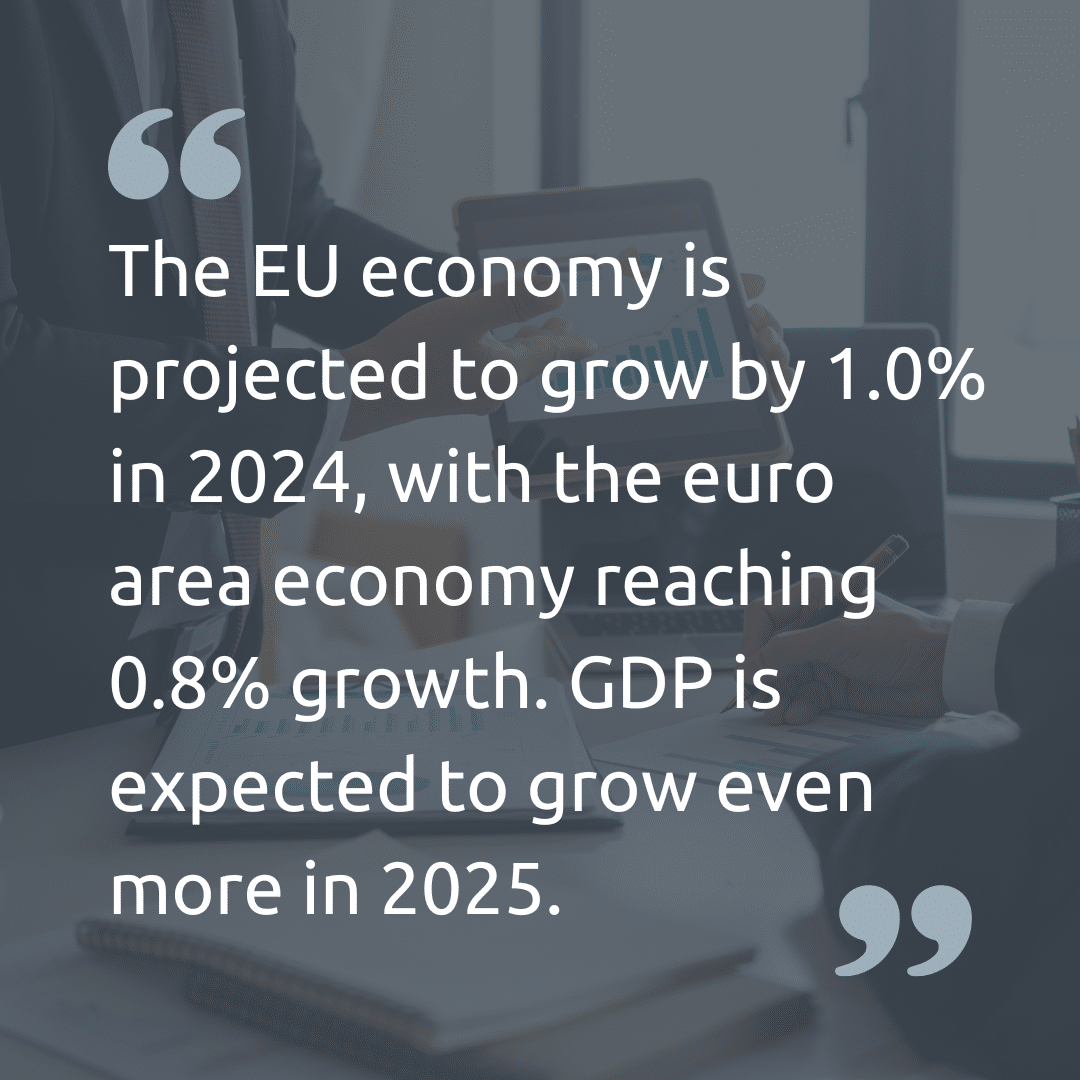Falling Inflation Rates and the Impact on Employment

Falling Inflation Rates and the Impact on Employment
According to the German Federal Statistical Office, inflation in Germany dropped to 2.2%, marginally off the 2% target, compared to 7.2% the previous year. This significant decrease prompts the question: what impact could a falling rate of inflation have on employment in the Eurozone?
The European Commission provides further context: the EU economy is projected to grow by 1.0% in 2024, with the euro area economy reaching 0.8% growth. GDP is expected to grow even more in 2025.
Meanwhile, EU inflation has been falling dramatically since 2022 and is expected to drop to 2.7% in 2024 and 2.2% in 2025. The jobs market is also performing well, with over 2 million jobs created in 2023 despite the economic slowdown.
Employment rates for people aged 20-64 hit new record highs in the last quarter of the year, and the unemployment rate in the EU stood at a record low of 6.0% in March 2024.
Buying power increases
Consumers’ purchasing power increases as inflation declines. This means consumers can buy more goods and services with the same amount of money, leading to increased consumption. As demand rises across different sectors, businesses must boost production to keep up. Thus, they can hire more workers, reducing unemployment.

Lower Interest Rates
Central banks like the European Central Bank (ECB) may respond to falling inflation by cutting interest rates. Consumers and businesses both benefit from lower interest rates. Consumers could take out loans for big-ticket items like homes and cars, and businesses could expand. A surge in economic activity can create jobs as companies expand and hire more people.
Improved Business Confidence
Business confidence can be boosted by stable and predictable inflation. Companies invest in long-term projects and hire more when they’re not worried about rising costs. This stability creates a more favourable environment for job growth, as businesses feel secure in their economic outlook and can plan with greater certainty.
Navigating Economic Growth and Employment Expansion
There’s a fine line between managing inflation and supporting employment for policymakers. Germany’s inflation is getting close to its 2% target, which suggests we might be on the verge of an economic rebound. With this positive trend, we’re likely to see a wave of jobs to support the growth and demand.
The European Commission’s projections support this optimistic outlook, forecasting steady economic growth and job growth. As the economy grows and stabilizes, businesses will likely expand overseas to find new markets and talent pools. This expansion often involves navigating complex regulatory environments and employment laws in different countries.
Darwin’s Employer of Record (EOR) solution is designed to facilitate this growth and expansion. By handling legal, HR, payroll, and compliance in new locations, Darwin helps businesses focus on what they do best. Our EOR services enable companies to hire talent quickly and efficiently in new markets, providing a seamless transition as they expand globally.
To read other EOR blogs click here: https://bit.ly/4bstZcB
If you would like to discuss your hiring requirements and explore how our solutions can support your growth, please contact us.
adam.drew@darwinrecruitment.com
Best regards,
Adam Drew
COO
Darwin Recruitment










